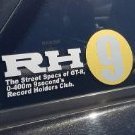R32 Gtr Rear Diff Wtb Canberra
Announcements
-
Similar Content
-
Latest Posts
-
No. The castings are all the same. As you have the inlet off, simply measure the diameter of the inlet ports and compare with the freely available on the net sizes of turbo and NA. The NA ones are small.
-
By GabsReDeal · Posted
Definitely do-able haha. I will give it a try if the fuel pump hanger does not solve the issue. Just need to find some quiet time in the area, Malta is like a big city and I live right next to the main hospital so it is very busy during the day. I'll be installing it in about 2 weeks, found a garage that is pretty knowledgeable and has the necessary tools. This garage has worked on multiple builds, even for competitions. They even asked me to stay with, so I should be fine. -
By GTR32 Jeff · Posted
Just to add, I found the r32 gtr ecu the most forgiving, the r33 one would get the shits. -
By GTR32 Jeff · Posted
For what it’s worth I drove my gtr for over a decade with gt-ss as a true daily after I pulled off the -5s, I had it engineered and went with stock ecu etc. never skipped a beat. I would only worry if you can’t get good fuel all the time in a tropical paradise
-






Recommended Posts
Create an account or sign in to comment
You need to be a member in order to leave a comment
Create an account
Sign up for a new account in our community. It's easy!
Register a new accountSign in
Already have an account? Sign in here.
Sign In Now